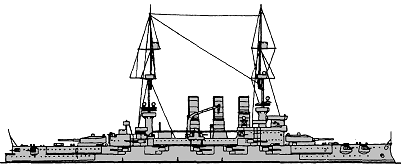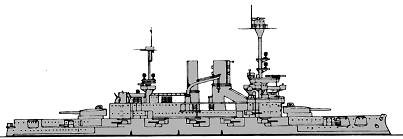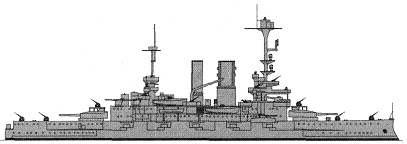
NAVYPEDIA
 Support the project with paypal
Support the project with paypal
Photo

Schleswig-Holstein
Ships
| Name | No | Yard No | Builder | Laid down | Launched | Comp | Fate |
|---|---|---|---|---|---|---|---|
| Deutschland | 109 | Germaniawerft, Kiel | 1903 | 19.11.1904 | 3.8.1906 | barrack ship 10.1917, stricken 1.1920 | |
| Hannover | 28 | K W Wilhelmshafen | 04/1904 | 29.9.1905 | 1.10.1907 | hulk 1935 | |
| Pommern | 262 | Vulcan, Stettin | 1904 | 2.12.1905 | 6.8.1907 | sunk 1.6.1916 | |
| Schlesien | 751 | Schichau, Danzig | 11/1904 | 28.5.1906 | 5.5.1908 | TS 1918, sunk 4.5.1945 | |
| Schleswig-Holstein | 113 | Germaniawerft, Kiel | 11/1905 | 7.12.1906 | 6.7.1908 | barrack ship 1917-1921, sunk 18.12.1944 |
Technical data
| Displacement normal, t | 13190 |
|---|---|
| Displacement full, t | 13994 |
| Length, m | 125.9 wl 127.6 oa |
| Breadth, m | 22.2 |
| Draught, m | 8.25 |
| No of shafts | 3 |
| Machinery | 3 VTE, 12 Marine boilers |
| Power, h. p. | 20540 |
| Max speed, kts | 18.6 - 19.1 |
| Fuel, t | coal 1600 - 1720 + oil 240 |
| Endurance, nm(kts) | 4800(10) |
| Armour, mm | belt: 240 - 100, bulkheads: 170, turrets: up to 280, casemates: 170, CT: up to 300, deck: 40, slopes: 97 - 67 Deutschland: belt: 225 - 150, bulkheads: 160, turrets: up to 280, casemates: 160, CT: up to 300, deck: 40, slopes: 97 - 67 |
| Armament | 2 x 2 - 283/37 SK L/40 C/01, 14 x 1 - 173/37 SK L/40 C/01, 20 x 1 - 88/32 SK L/35 C/01, 4 x 1 - 7.9/79, 6 - 450 TT (1 bow, 4 beam, 1 stern) |
| Complement | 743 |
Standard scale images

Schlesien 1908

Schleswig-Holstein 1932

Schlesien 1943
Graphics
Project history
Except for different shaped funnels, a larger tertiary armament of 88mm guns, and a slightly thicker belt, with more armour on the main armament, Germany's last pre-dreadnoughts were very similar to the previous class. The weakness in the protection and magazine arrangements of the secondary armament was almost certainly the cause of the loss of the Pommern to one torpedo fired by a British destroyer at the Battle of Jutland, where these ships were the only pre-dreadnoughts present.
In 1924-1926 Schleswig-Holstein and 1925-1927 Schlesien were modernized on Wilhelmshaven DYd: 8 boilers were converted to oil, fwd funnel was pooled with second, 170mm/40 guns, which ammunition has appeared too heavy for hand-operated loading, were replaced by 150mm/55, and their number was shrunk to 12; former 88mm/45 guns were removed, 4 88mms/45 AA guns were installed. Schleswig-Holstein again has become operational 1.2.1926 as fleet flagship; Schlesien returned to service 1.3.1927.
In process of commissioning of pocket battleships they were converted to training ships: Schlesien in February-April, 1934 and Schleswig-Holstein in January-March, 1936. Thus 2 more 150mm guns and all TTs were removed, 4 37mm and 4 20mm AA MGs were installed.
Ship protection (Deutschland)
Main belt had 225mm thickness between barbettes, tapering to 150mm at lower edge. Its thickness decreased to 100mm from fore barbette to stem and abreast aft barbette. After end of the waterline was unprotected. The belt had 80mm teak backing. Citadel was closed by 160mm transverse bulkheads. Main 40mm protective deck was connected with lower edge of the belt by the slopes, 67mm-thick inside the citadel and 97mm-thick fore and aft. Main gun turrets had 280mm sides and 50mm crowns, casemates had 160mm protection, gunshields for 88mm guns had 70mm thickness. Main CT had 300mm sides and 80mm roof, aft CT had 140mm sides and 30mm roof.
Ship protection (Hannover, Pommern, Schlesien, Schleswig-Holstein)
Main belt had 240mm thickness between barbettes, tapering to 170mm at lower edge. Its thickness decreased to 100mm from fore barbette to stem and abreast aft barbette. After end of the waterline was unprotected. The belt had 80mm teak backing. Citadel was closed by 170mm transverse bulkheads. Main 40mm protective deck was connected with lower edge of the belt by the slopes, 67mm-thick inside the citadel and 97mm-thick fore and aft. Main gun turrets had 280mm sides and 50mm crowns, casemates had 170mm protection, gunshields for 88mm guns had 70mm thickness. Main CT had 300mm sides and 80mm roof, aft CT had 140mm sides and 30mm roof.
Modernizations
1916, Deutschland: was disarmed.
1918, Schleswig-Holstein: was partly disarmed, armament consisted of 6 x 1 - 105/42 SK L/45 C/11, 4 x 1 - 88/32 SK L/35 C/01
1921, Hannover: was armed with 2 x 2 - 283/37 SK L/40 C/01, 14 x 1 - 173/27 SK L/40 C/01, 4 x 1 - 88/45 SK L/45 C/13
(1924 - 2.1926), Schleswig-Holstein: 8 boilers were converted to oil (fuel stowage was 1130t of oil and 436t of coal, 4000(12)nm), ship was armed with 2 x 2 - 283/37 SK L/40 C/01, 14 x 1 - 149/43 SK L/45 C/09, 4 x 1 - 88/45 SK L/45 C/13, 4 x 1 - 500 TT
(1925 - 3.1927), Schlesien: 8 boilers were converted to oil (fuel stowage was 1130t of oil and 436t of coal, 4000(12)nm), ship was armed with 2 x 2 - 283/37 SK L/40 C/01, 14 x 1 - 149/43 SK L/45 C/09, 2 x 1 - 88/45 FlaK L/45 C/13, 4 x 1 - 500 TT
1927, Hannover: + 4 x 1 - 500 TT (beam)
1930, Hannover: + 1 - 500 TT (bow)
1930, Schlesien: + 2 x 1 - 88/45 SK L/45 C/13
1931, Hannover: - 4 x 1 - 88/45, 1 - 500 TT (bow)
1931, Schlesien, Schleswig-Holstein: - 2 x 1 - 149/43, 4 x 1 - 88/45
1935, Schlesien; 1937, Schleswig-Holstein: - 2 x 1 - 149/43, 4 x 1 - 500 TT; + 6 x 1 - 105/42 SK C/32, 4 x 1 - 37/80 SK C/30, 4 x 1 - 20/65 C/30
late 1939, both survived: - 10 x 1 - 149/43
1943 - 1944, both survived: - 4 x 1 - 37/80, 4 x 1 - 20/65; + 10 x 1 - 40/56 FlaK 28, 4 x 4 - 20/65 C/38, 3 x 2 - 20/65 C/38, FuMO 25 radar, FuMB 6 ECM suite
1945, Schlesien: + 5 x 2- 20/65 C/38
Naval service
Till beginning of WWI they were a part of 2nd squadron of vice-admiral Scheer and participated in Battle at Jutland. Pommern was torpedoed by one of destroyers of 12th flotilia in night phase of battle and has sunk with 839 crew members. Using of out-of-date ships to joint actions with dreadnoughts was a great error. Deutschland in 1917 was stricken, disarmed 25.1.1920 and sold for scrap. Hannover since 1917 was used as receiving ship. In 1935 she was disarmed, served as a target ship for aircraft and broken up after WWII.
1.9.1939 Schleswig-Holstein has made the first shoot of Second World War, having fired at Polish fortress Westerplatte. Since the end of 1940 till mid-1944 they were in East Baltic. Schleswig-Holstein was sunk 18.12.1944 by British aircraft at Gotenhafen. Schlesien was hard damaged 3.5.1945 on a mine off Usedom and 4.5.1945 blown up by crew at Swinemünde.
 HOME
HOME FIGHTING SHIPS OF THE WORLD
FIGHTING SHIPS OF THE WORLD GERMANY
GERMANY CAPITAL SHIPS
CAPITAL SHIPS DEUTSCHLAND battleships (1906 - 1908)
DEUTSCHLAND battleships (1906 - 1908)
